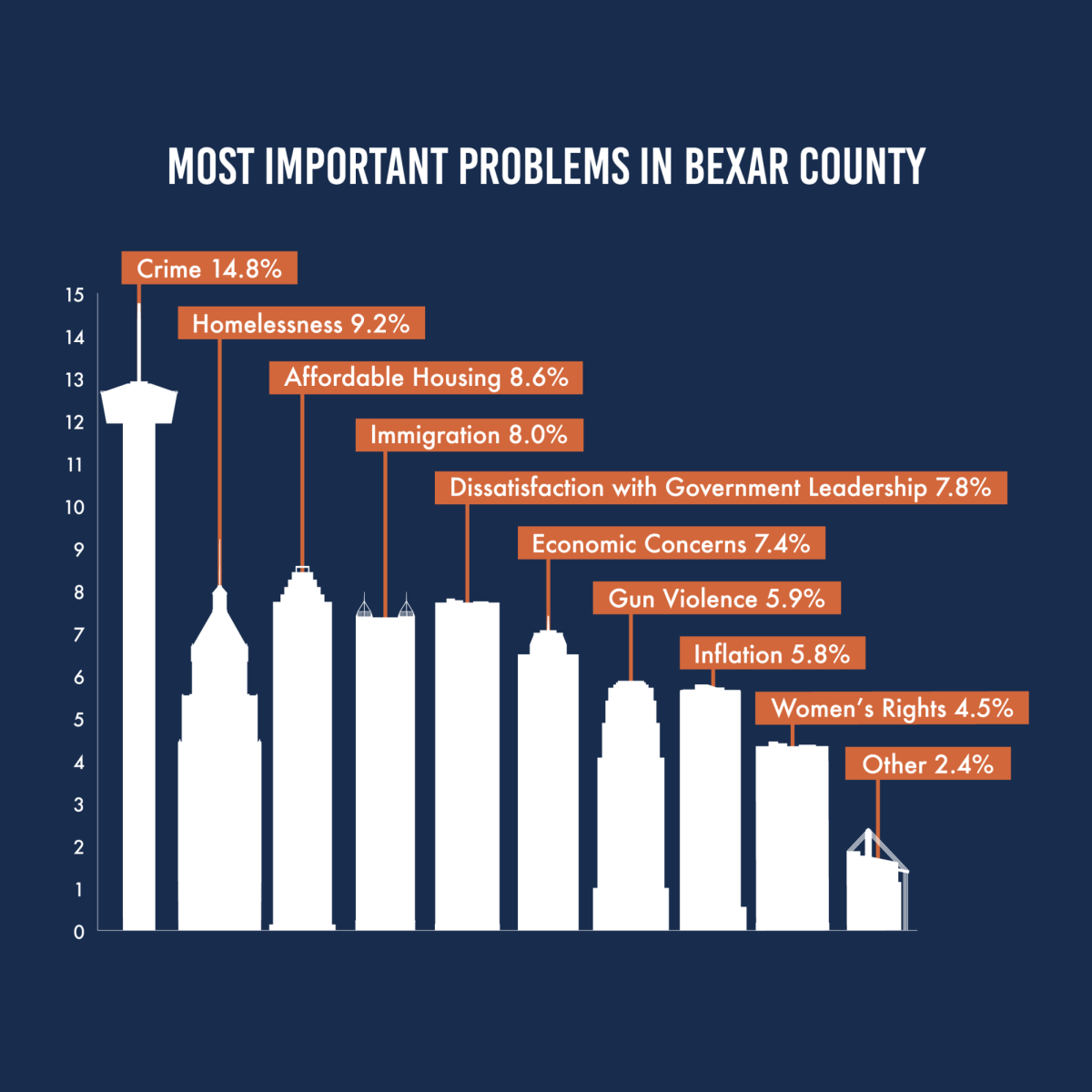A poll conducted by the Center for Public Opinion Research at UTSA found that crime was the most important issue concerning Bexar County voters in the 2024 General Election.
The survey was conducted from Oct. 28, 2024, the day early voting started in Texas, to Nov. 4, 2024, the day before election day. There were 829 registered Bexar County residents polled, with 642 residing in the city limits of San Antonio.
According to the report released by the CPOR, respondents were asked to “identify the most important problem facing Bexar County today.”
The poll found that 14.8% of respondents identified crime as the most important issue facing Bexar County. Homelessness was second with 9.2%, followed by affordable housing at 8.6%.
The importance of crime to Bexar County voters is not uncommon compared to other major metropolitan areas in Texas.
According to a poll conducted by the University of Houston Hobby School for Public Affairs, crime and rising property taxes are tied for the single most serious issue facing Harris County. Both categories concerned 16% of respondents, with electrical service reliability following at 12%. The survey polled 491 likely voters in Harris County.
The poll conducted by the CPOR saw several trends emerge among Bexar County voters concerning the six propositions that were passed during the 2024 election. Two contentious propositions — Prop C and Prop E — saw deviations in support based on the language presented to the voter.
Prop C removes salary and tenure caps for the city manager position. Before the proposition was passed, caps limited the role to an eight-year term and a salary no greater than ten times the lowest-paid salaried city worker.
Prop E gives salary raises of approximately $25,000 to both the mayor and city council positions.
The CPOR tested the support of Bexar County residents for these propositions. Respondents were given the proposition language as they were presented on the ballot and a simplified explanation about what the propositions would accomplish.
The poll found that respondents were less likely to support Propositions C and E if they read the simplified explanation. The CPOR theorizes that a contributing factor for these propositions passing may have been voters misunderstanding the language of the measures.
Additionally, the CPOR study found that 76.8% of respondents “did not receive campaign contact regarding the amendments, had not heard about the amendments prior to voting or were not sure if they had been contacted or had heard about the amendments.”
This data supports the notion that local campaigns in support or against the various propositions had little impact on voters.
The CPOR study delved further into various voter trends for the 2024 election. More information regarding the research conducted by the CPOR and their findings can be found on their website colfa.utsa.edu/political-opinion/.











